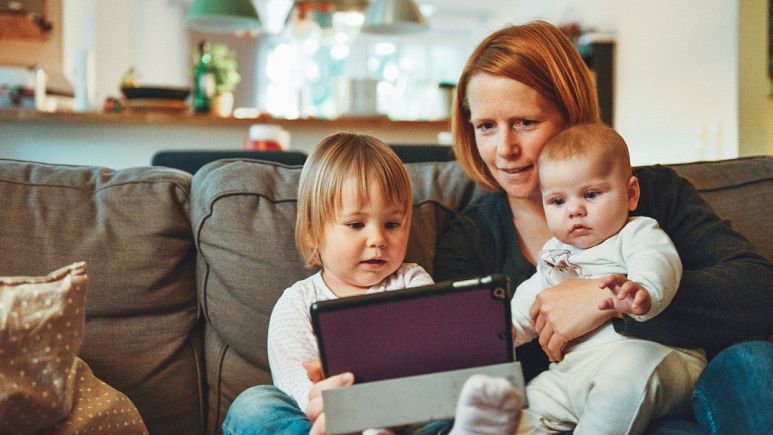Locked down working mothers do bulk of childcare and housework
by Alice Tidey
Working parents locked down because of the pandemic do not share childcare and housework duties equally, with mothers doing most of the work, a new study has found.
More than 3,500 parents in opposite-gender two-parent households were surveyed in England between late April and mid-May by the Institute of Fiscal Studies and University College London.
Researchers stressed in their report released on Thursday that "several of our findings suggest that there is a risk of reversing some of the progress made in narrowing the gender wage gap over recent decades."
They found for instance that working mothers confined at home are spending less time on paid work and more on household responsibilities and now work two fewer hours a day.
The difference in work patterns have also been exacerbated by the health crisis. In 2014/2015, mothers were in paid work at 80% the rate of fathers; now this rate stands at 70%.
Mothers and fathers also used to be interrupted during the same proportion of their work hours, but now mothers are interrupted over 50% more often.
In fact, the survey found that working mothers confined at home manage to do only one hour of uninterrupted paid work for every three hours their male partner does.
It also flagged that mothers are more likely to have quit, lost their jobs or to have been furloughed since the start of the pandemic and that those who have stopped working for pay during lockdown while their partner continues now do twice as much childcare and housework as their partner.
"In the reverse situation, in families where the father has stopped working, the parents share childcare and housework equally, while the mother also does 5 hours of paid work a day," the report states.
Researchers do flag as worthy that there has been a "substantial increase in the time the average father spends on childcare" but note that "whether this change creates the impetus for longer-lasting change in how many parents share childcare s an important open question".
"The way that couples divide paid work and household responsibilities during this crisis could have an effect that lasts long after the lockdown is lifted," they added.
They cited evidence that paternity leave reforms across Europe suggest that even small increases of fathers' time at home "can have long-run effects" including a reduction in gender gaps in the division of home labour.